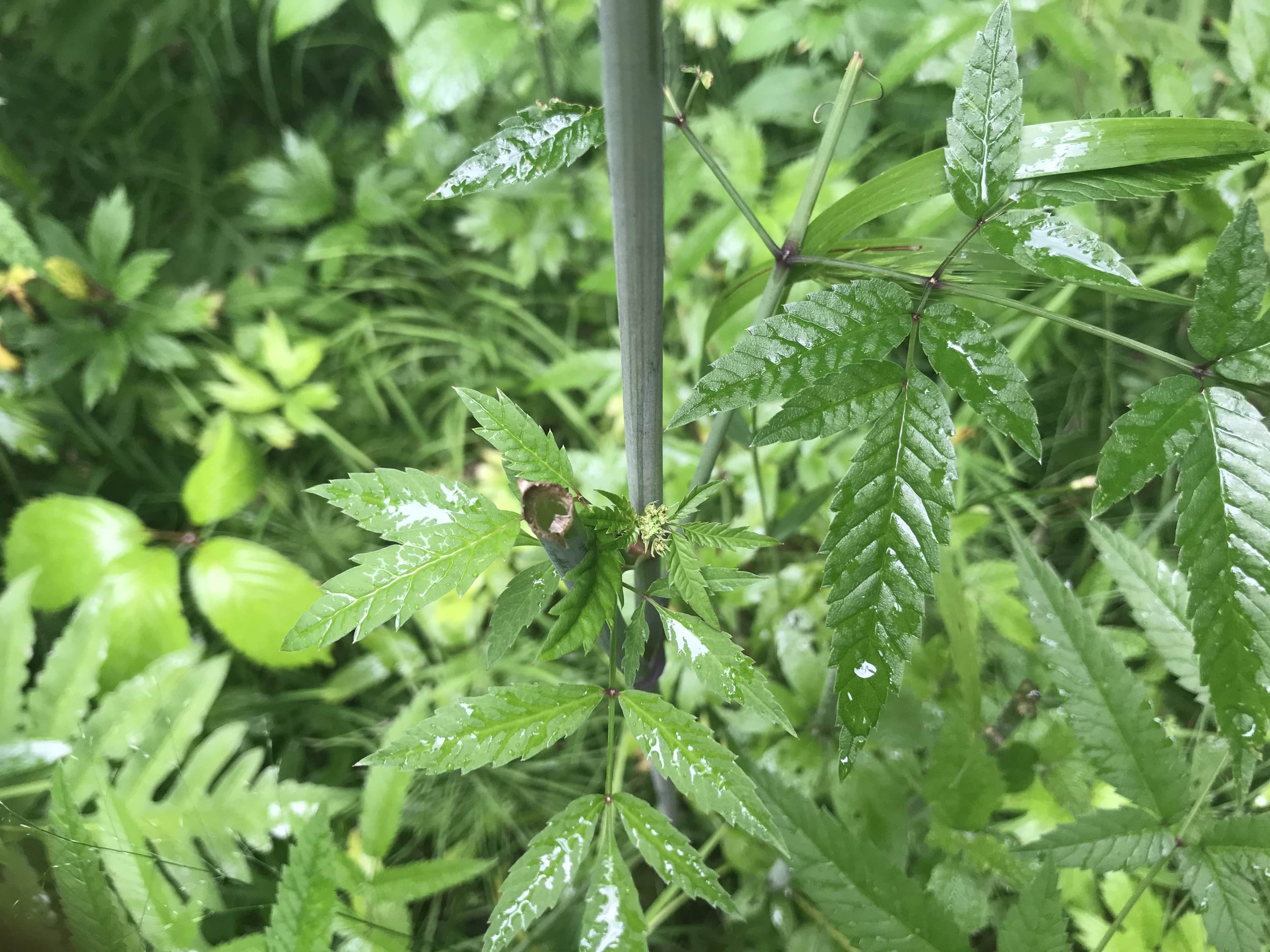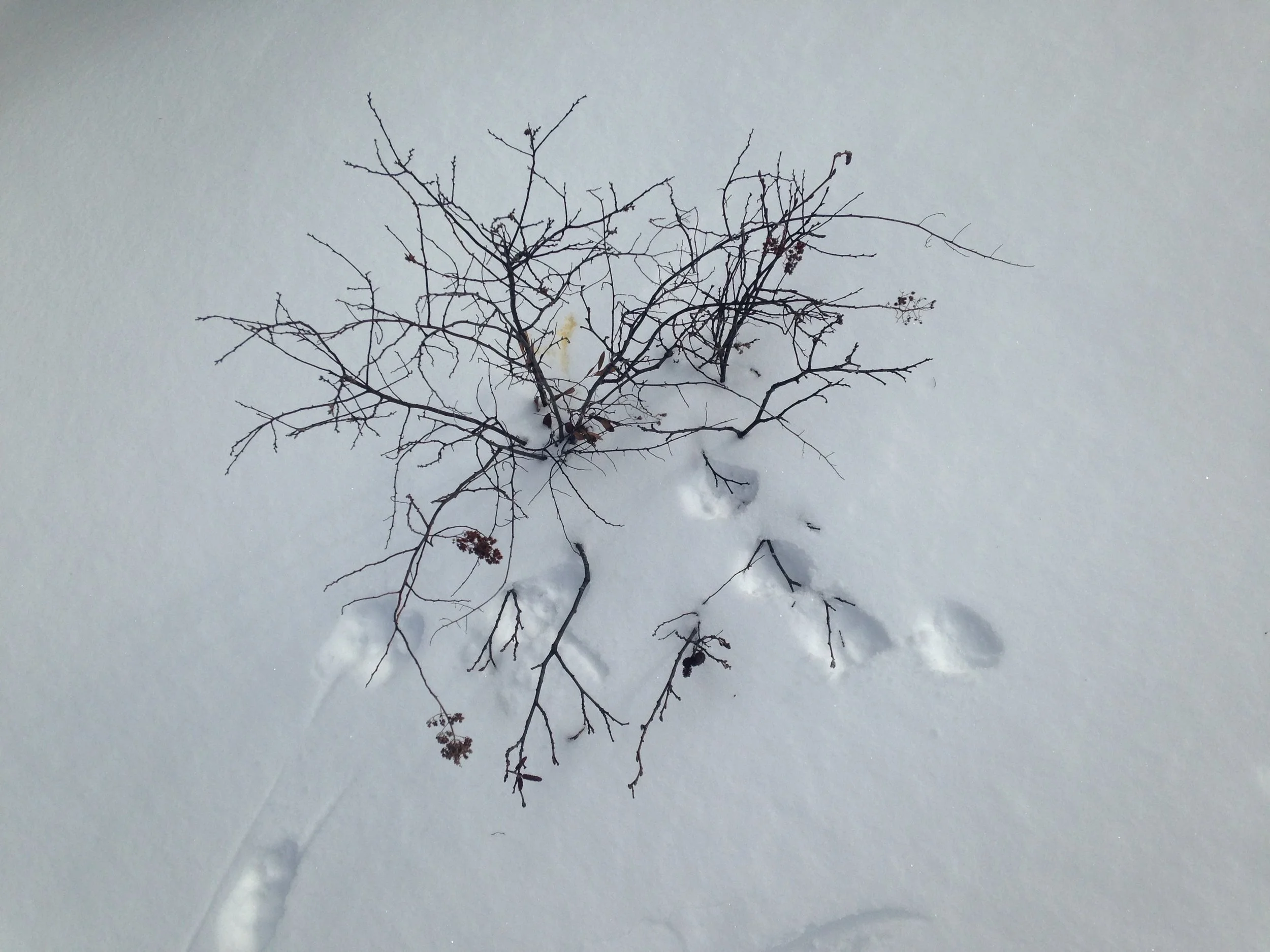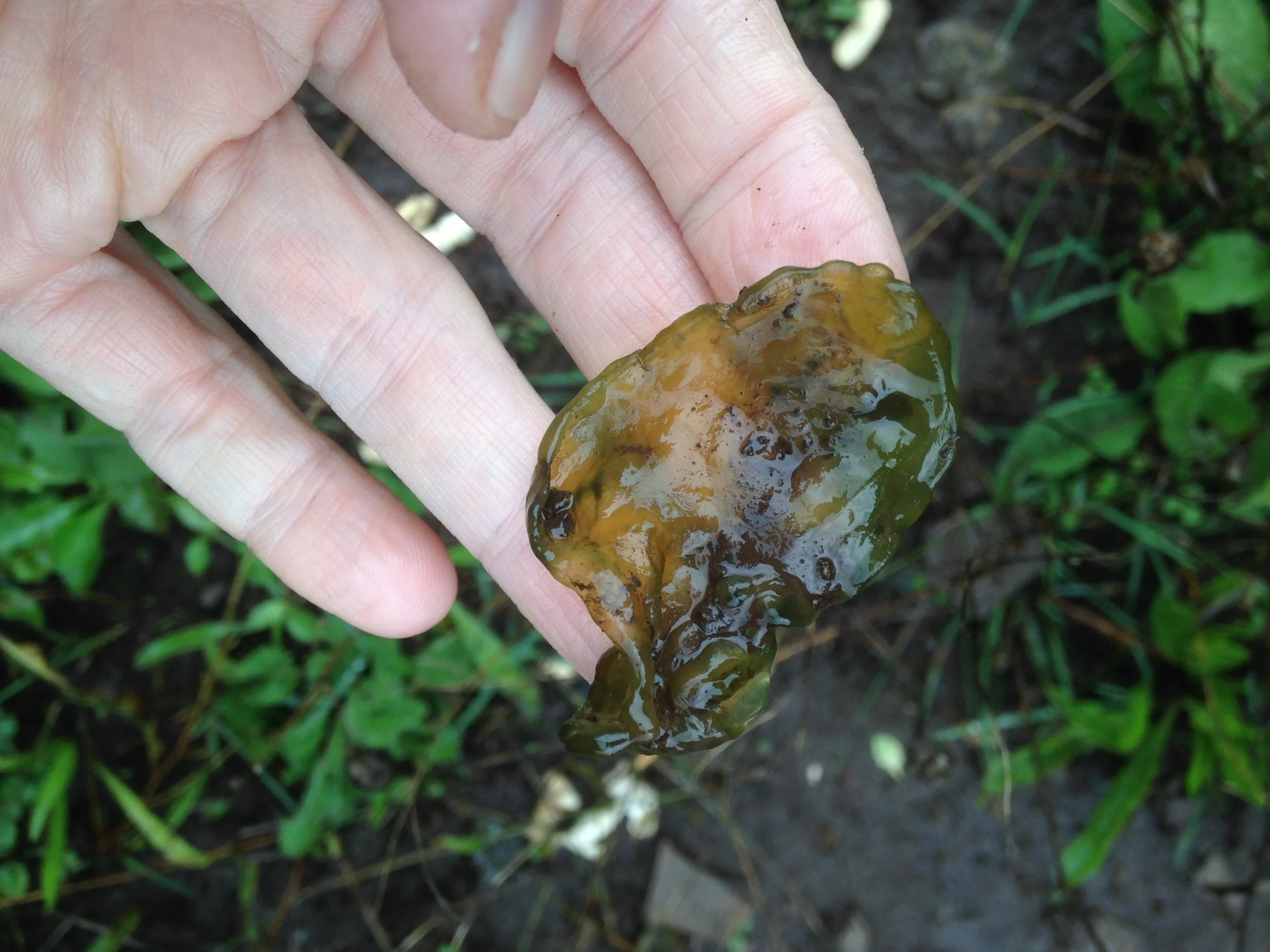
What’s going on out on the land?

White-tailed Deer consuming Water Hemlock
White-tailed Deer consume a lot of different things. It seems everytime I see some Deer browse, it appears to be a new forb, shrub, or tree which I hadn’t seen a Deer browse before. I wanted to look into the foods which Deer browse more generally, but also focus on a new discovery of Deer browse on the aerial parts of Water Hemlock.

Are There Dangers In Smelling Red Fox Urine?
Recently, while trailing in Algonquin Park with the Earth Tracks Wildlife Tracking Apprenticeship some of us bent down on different occasions to smell Algonquin Wolf, Red Fox, and River Otter scent marks, which were usually small deposits of urine placed in a prominent spot along the animal’s trail. When we got back to the Wildlife Research Station which was our home base for the weekend, we got to talking about safety around sniffing animal urine when trailing.
Personally, I have smelled animal urine literally hundreds of times. Nearly every time I see a urine deposit on an animal trail, aside from Human (Homo sapiens) and other domestic animals, I get down and sniff. But the questions got me reflecting; When tracking or trailing an animal, are there dangers in smelling animal urine?

Study in Cyanobacteria
It was green and ..snotty, but a little more solid. Like someone coughed up some strange phlegmy goo and it got rained on for a while. I didn’t see it, but I think others had mentioned that there was more hidden amidst the grasses, limestone shale and small forbs.
This goo has had many names, including Star Jelly, Star Shot, and Star Slime, Troll’s Butter, Witch’s Butter (not the fungi), and Witch’s Jelly. It is more formally known as Nostoc, which is the genus name of this really interesting cyanobacteria.
